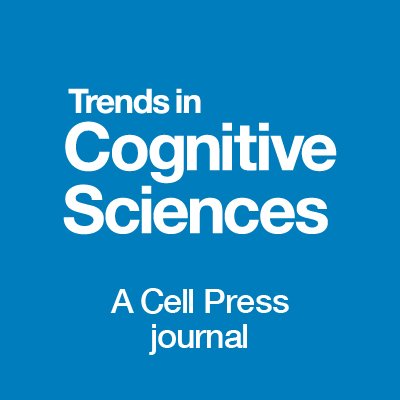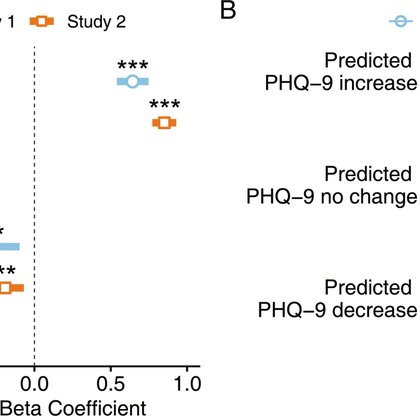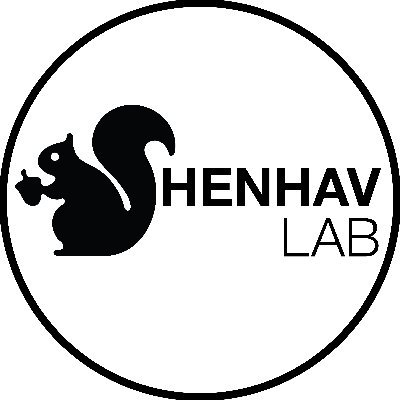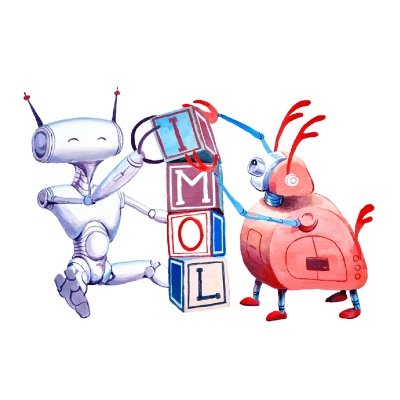
Bastien Blain
@Bastien__Blain
Followers
503
Following
2K
Media
20
Statuses
387
I develop some computational models and I then hope people comply with them. I sometimes do the same with neural data. App: https://t.co/bIbE7d8BK1
Paris, France / London, UK
Joined May 2015
Origins and consequences of cognitive fatigue Feature Review by Mathias Pessiglione, Bastien Blain (@Bastien__Blain), Antonius Wiehler (@ntonius_w), & Shruti Naik Free access before May 20: https://t.co/PX4n0F9Zr0
0
47
147
🧠 One of the key limitation of LLMs today is their lack of metacognition: they were (mostly) not trained to know what they know or don't know, what they can or can't do. 🚀At @FlowersINRIA, we're proposing an approach to build metacognition into LLMs: MAGELLAN !
1
6
30
Exciting new project led by @jpheffne showing prediction errors can explain happiness in human-AI interactions. Builds off our recent work linking mood & language led by @jihyuncindy_hur
https://t.co/HQqt53vIIt If we want AI to increase well-being, we need to measure it.
pnas.org
The prevalence of depression is a major societal health concern, and there is an ongoing need to develop tools that predict who will become depress...
I am SO excited to share my latest #preprint with collaborators @RobbRutledge, @zebkDotCom, @MartinJChadwick, @summerfieldlab, and others from DeepMind: "Increasing happiness through conversations with artificial intelligence" https://t.co/RGmAAGeqBS A short 🧵 1/7
1
4
21
I am SO excited to share my latest #preprint with collaborators @RobbRutledge, @zebkDotCom, @MartinJChadwick, @summerfieldlab, and others from DeepMind: "Increasing happiness through conversations with artificial intelligence" https://t.co/RGmAAGeqBS A short 🧵 1/7
arxiv.org
Chatbots powered by artificial intelligence (AI) have rapidly become a significant part of everyday life, with over a quarter of American adults using them multiple times per week. While these...
3
24
63
Very pleased to start a 5-year research program using data science to investigate the role of instability in severe mental illness. If you/someone you know want to join the team, PM me (recruitment starts soon). Thanks to @OxHealthBRC, @OxPsychiatry, and Sir Jules Thorn Charity
Dr @MaximeTaquet has been awarded the 2024 Sir Jules Thorn Award for Biomedical Research. The Award recognises the outstanding quality of his cutting-edge research. https://t.co/H2ZhseS1kq
9
7
36
The metabolic costs of cognition Review by Sharna D. Jamadar (@SharnaJamadar), Anna Behler (@Anna_NeuroSci), Hamish Deery (@DeeryHamish), & Michael Breakspear (@DrBreaky) Free access before March 4: https://t.co/OMVwrs5TpW
3
116
401
New(ish) paper w/ @affectivebrain & @Bastien__Blain in @SciReports! We find that during stress (both COVID and personal events), people search for more “How” questions online. This shift indicates a heightened demand for actionable info. Link: https://t.co/WPE9DrWBUr 🧵1/3
nature.com
Scientific Reports - “How” web searches change under stress
1
7
19
.@Moshe_Glickman and @affectivebrain reveal a human-AI feedback loop, where AI amplifies subtle human biases, which are then further internalized by humans. This cycle increases human bias over time across domains. https://t.co/hyGntC4sNt
nature.com
Nature Human Behaviour - Glickman and Sharot reveal a human–AI feedback loop, where AI amplifies subtle human biases, which are then further internalized by humans. This cycle, observed...
0
23
82
Super happy to share this paper with Lucia Ricciardi and Bart Swinnen and others looking anxiety in PD! Turns out that basal ganglia theta indexes trait anxiety in 3 independent cohorts. https://t.co/rrCnNNziFM
academic.oup.com
Swinnen et al. explored the neural basis of anxiety in Parkinson's disease by examining brain activity in patients with implanted deep brain stimulation el
0
6
24
I’m thrilled to see this out now, & couldn’t be happier that it landed in TiCS! I already wrote a 🧵on the positive case I’m making (below). I want to briefly elaborate on the negative case: why the status quo on goals & value is in need of a new account. From my conclusion:
Our paper on the Affective Gradient Hypothesis is now out on @TrendsCognSci! 🧠 ➡️ https://t.co/06U46A3Pn3 For a short summary of how this theory originated and what it proposes, see this 🧵:
1
8
54
The affective gradient hypothesis: an affect-centered account of motivated behavior Opinion by Amitai Shenhav (@amitaishenhav) Free access before Nov 13: https://t.co/ADW90jSxkl
1
36
137
Our paper on the Affective Gradient Hypothesis is now out on @TrendsCognSci! 🧠 ➡️ https://t.co/06U46A3Pn3 For a short summary of how this theory originated and what it proposes, see this 🧵:
I'm very excited to share a preprint from a passion project I've been working on this past year! This came out of trying to work through two puzzles that have been bothering me for a while, and which are at the core of almost everything most of us study. https://t.co/JfaLoN1Okm
0
16
52
Computational psychiatry friends: I am teaching a seminar on CPSY for the 2nd time (previous: 2021) and want to update my syllabus. Can you help? What are your favorites* (can be your own papers!) on the following: *Ideally: easy to read & informative on both model and disorder
5
27
113
Beyond discrete-choice options Review by AH Hadian Rasanan , NJ Evans, @laurafontanesi, @CManningPhD, C Huang-Pollock, @dora_matzke, @AndrewHeathcot8, @JoergRieskamp, @MaartenSpeek, MJ Frank, @StePalminteri, C Lucas, J Busemeyer, R Ratcliff, & JA Rad https://t.co/ejnt11LmsP
0
14
47
🚨 New paper alert! 🚨 “Considering information-sharing motives to reduce misinformation” out now in Current Opinion in Psychology with @affectivebrain. https://t.co/xhJ7BkC6zE (1/n)
1
8
26
I am so excited to be part of this fantastic project. Submit your work and join us @NeurIPSConf in Vancouver!
🚨We're back!🚨 Excited to announce The 2nd IMOL Workshop at #neurips2024! Send us your 📜newest work📜on learning & exploration in artificial and biological agents. #CFP at https://t.co/6KDwrtx36b 🔄Please share widely & stay tuned for more programming announcements!
0
6
26
Prediction is likely the most basic cognitive process, but we almost always think of it as applied forwards In some environments, though, it's more efficient to apply it backwards - estimating the actions that will likely precede a given outcome It turns out that's what we do👇
🚨 Beyond excited to share work w @eraneldar on Predecessor Representation in human choice is out now @NatureHumBehav We show how PR or SR is more efficient due to the ratio of past:future states in an env in 6 studies! Full paper: https://t.co/id0tcuX2vj Detailed thread 👇
1
4
33
Our newest preprint explores whether feelings (affect) may be the only form of value you need to motivate thoughts and actions. "The affective gradient hypothesis: An affect-centered account of motivated behavior." https://t.co/yDzwuB45JO See 🧵 below to learn more:
I'm very excited to share a preprint from a passion project I've been working on this past year! This came out of trying to work through two puzzles that have been bothering me for a while, and which are at the core of almost everything most of us study. https://t.co/JfaLoN1Okm
0
8
33
Are humans behaving more like foragers even on typical reinforcement learning tasks? Work by Zid et al. https://t.co/CG6qIP2U2W
1
3
15
0
0
2























